The current reimbursement environment is forcing hospital administrators to evaluate provider productivity and program performance more closely.
Administrators are reexamining multiple touchpoints to optimize provider performance and see tangible, meaningful, and long-term results, including the cost-effectiveness of insourcing versus outsourcing, revenue growth, and overall patient satisfaction.
Hospitals that employ their own emergency medicine and hospital medicine physicians face even tougher challenges, such as provider recruitment and retention, clinical leadership development and accountability, performance management, and documentation and revenue cycle efficiencies, to name a few.
What Hospitals — and Their Employed Physicians — Want
Administrators and hospital-employed providers want the clinical autonomy to create a practice that is efficient, high quality, and patient-centric so that patients remain loyal to the health system.
They also want solutions to the practice coordination and complexity challenge of mitigating compliance risk that shifts from health plans to providers as part of managed care arrangements. And, they want vehicles to strengthen hospital-physician alignment to offset the complicated reimbursement challenges of healthcare reform.
The problem, according to Christopher Lutes, Executive Vice President & Group Operating Officer, SCP Health, is that management of hospital-based provider groups is different from a revenue cycle and cost-efficiency perspective than the traditional office, surgery center, or specialized employee providers to which hospitals are accustomed.
“The professional services that organizations such as SCP Health bill for have largely been ignored over the years by hospitals and health systems,” Lutes says. “They are not acclimated to providing revenue cycle services like coding, billing, and collecting, and doing so in a compliant way.”
That’s where physician practice management service organizations (MSO) can help. They remove the burden of non-clinical responsibilities so that hospital leadership, pulled in fewer directions, can focus on culture and clinical excellence. This relieves stress on administration, which, in turn, creates a more engaging environment for staff and more welcoming space for patients.
Thanks to MSOs, practices receive significant administrative assistance, physicians maintain the increased level of autonomy they want, and patients experience improved service engagements, economies of scale, and more substantial cost savings.
How Hospitals Benefit from MSOs
Management services organizations/MSO benefit hospitals in four primary ways:
- Creating cost-efficiencies
- Expanding revenue opportunities
- Improving clinical performance
- Reducing administrative burdens
Greater Cost Efficiencies
Among the many benefits an MSO can offer hospitals, cost efficiency is often the most attractive.
A practice management organization’s ability to present à la carte services like billing and coding results in higher overall productivity without additional expense. MSOs can also aggregate volume and obtain economies of scale that enable them to receive preferred pricing on everything from medical supplies to healthcare insurance.
Expanded Revenue Opportunities
While cost savings positively affect ROI, expanding revenue growth opportunities by implementing effective reimbursement processes, accurate coding and collection practices, improved documentation and billing, and maximized operational throughput is where MSOs can affect change the most.
“The question I ask hospital administrators is why leave money on the table that is rightfully yours?” Lutes says. “Hospitals don’t always have the knowledge base to fully and compliantly bill for professional services, and because of under-coding — or, in some cases, over-coding — that’s exactly what happens. MSOs can move the needle on critical factors with core management competencies that help improve the revenue cycle.”
Case Study: Revenue Cycle and Documentation Assurance Management Partnership Produces Measurable Results
Improved Clinical Performance
It’s not unusual for hospital-based physician groups to be without a starting point regarding clinical performance, according to Lutes. That includes factors such as measuring success in target metrics that lead to improved outcomes, reduced variations of care, increased patient satisfaction, and enhanced coordination of care.
In his view, improving clinical performance begins by building a dashboard.
“We have the experience and ability to implement a clinical quality and productivity performance dashboard that gives these provider groups a benchmark from which to start,” Lutes says referring to SCP Health’s management solutions.
“That includes knowing the important priorities and data, and then collecting the data and reporting on it in a timely and meaningful way that allows actions to be taken and that serves as a guide for the administrative structure so that when they meet, they know what to talk about.”
Case Study: Enhancing Program Economics and Building a Culture of Continuous Improvement
Reduced Administrative Burden
In its position paper, “Patients Before Paperwork,” the American College of Physicians (ACP) states, “Administrative tasks that cannot be eliminated from the health care system must be regularly reviewed, revised, aligned, and/or streamlined in a transparent manner, with the goal of minimizing burden, by all stakeholders involved.”
To ACP’s point, the growing number of administrative tasks on physicians divert time and focus from performing clinical activities.
Hospital management services can provide the management functions necessary to help reduce the administrative burden by taking on tasks such as medical staff integration and collaboration, improving access to clinical leadership and development, and providing detailed reporting and analytics capabilities.
Conclusion
With the continued transition in today’s healthcare environment to value-based services and challenges with reimbursement, hospital leaders and provider groups are leveraging hospital management services for practice management, administrative support, and nonmedical functions to control costs and maximize efficiencies. By taking over these “back office” functions, MSOs give physicians the time needed to do what they do best — care for patients.
If your facility or system is ready to explore the benefits practice management services provide, our team here at SCP Health can help.
We work with hospitals, urgent care centers, and physician groups nationwide implementing practice management and support solutions to deliver high success, affordable, and appropriate care. A leader in clinical effectiveness, SCP Health has proven experience across a variety of healthcare organizations in optimizing their employed providers and associated program performance.
Contact us to learn how SCP Health’s practice management solutions can help you optimize your investment in employed providers.
Related Resources:
Blog: 4 Common Challenges of Hospital-based Physician Services & Tips for Success
Webinar: Improving the Performance of Employed Providers


